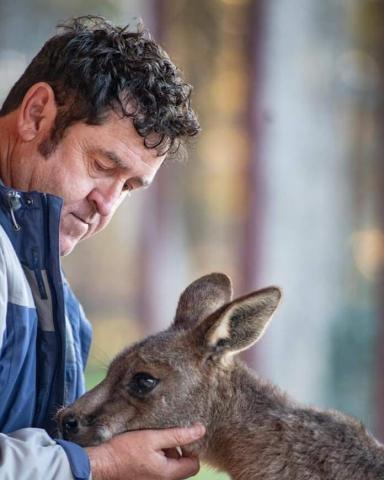
Fresh air, clean water and wide open spaces. It's a privilege to live in such a beautiful country with scenic landscapes and diverse species of animals, birds, reptiles and aquatic life. But are we doing enough on our part? Are we helping to protect and respect what we've been given?
Seeing an animal in the wild is often a special moment for us. However, approaching them in their habitat is actually more of a threat than a friendly gesture. A human presence in their private space can unfortunately ruin an animal's sense of security and safety. Animals can interpret this intrusion as a threat of danger, putting them on edge and preventing them from feeding their young ones or being able to rest. Just a small instance of human intervention can cause a breach of trust in their surroundings, putting them on high-alert even when alone.
Unfortunately, it's getting harder and harder to steer clear of our wildlife's private spaces. Human development is pushing our communities further into their territory, and regional settlements are now highly integrated with natural animal habitats. Animals' homes are being knocked down to make way for our own. This melding of territories is causing changes in animal behaviour, disrupting mating patterns and leaving wildlife homeless.
So, in this changing world, how can we protect our environment and the creatures that inhabit it?
It may be a rocky path, but definitely a beautiful destination once we decide to look after our wildlife for their and our own wellbeing. Even baby-steps to preserve and conserve can mean multitudes.
1. SUPPORT - There are many Government and private organisations that play a vital role in wildlife protection, and we may support them by supporting their cause. Volunteering with or contributing monetary support to organisations such as WIRES is an excellent way to contribute to our community, and to help experts lead the way.
2. REDUCE WASTE - Many restaurants have moved away from disposable cutlery and straws, and for good reason. Single-use items like these clutter up landfill and our waterways, ending up around the neck or in the stomach of hungry and unsuspecting wildlife. Littering is also a prevalent issue, with dangerous waste dropped and washed down storm drains. Composting your organics, opting for packageless fruit and veg at the supermarket, rinsing and repurposing your glass jars and using re-usable cloth shopping bags are little examples of minimising your waste. Reducing the amount of waste we dispose of regularly is a simple step towards a cleaner future.
3. LANDSCAPE RESPONSIBLY - Trees are our only source of natural oxygen and thus we must safe-guard them. Before removing flora from your yard for aesthetic purposes, consider the animals and insects that require them to survive. Bees feed from your flowers, birds raise their young in your trees, possums nibble on your fruit. Cutting a tree down is taking away the home of the animals who live in and feed on them, and is worth a second consideration. Additionally, a simple act like planting a tree on your birthday, anniversary or any other special occasion can make a difference.
4. REPORT ABUSE - Harassing, trapping or shooting our native wildlife is not only illegal but also cruel. All native birds, reptiles, amphibians and mammals (excluding the dingo) are protected in New South Wales by the Biodiversity Conservation Act 2016. Please report any wildlife injuries you may come across in NSW to WIRES on 1300 094 737.
5. DRIVE SAFELY - Wildlife zone road signs indicate areas of high animal traffic, particularly at sunrise and sunset. In these areas please slow down and drive with caution, looking both at the road ahead and to the roadside for animals that may dart across. Wildlife such as kangaroos and wallabies are unpredictable when encountered on the road, and can be easily startled by oncoming traffic. To prevent a collision and protect both yourself and local animals from serious harm, please remain vigilant while driving, check the roadside and slow down in wildlife zones.
If you encounter sick, injured or distressed wildlife within NSW, contact WIRES Wildlife Rescue 1300 094 737